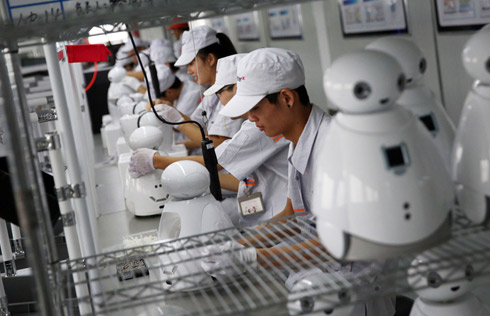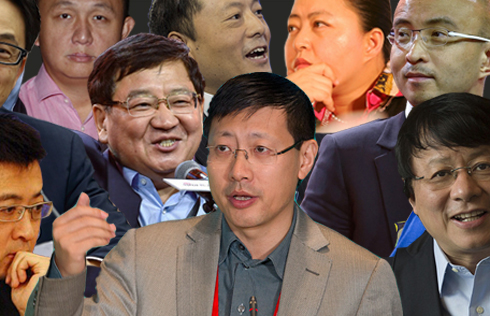Broadcom-Qualcomm deal eyed by Chinese regulator
A possible mega merger between semiconductor giant Broadcom Ltd and its US rival Qualcomm Inc became a topic of interest after China's Ministry of Commerce said Thursday it was entitled to investigate the deal.
Broadcom is exploring a $105 billion acquisition of Qualcomm, which kicks off an ambitious attempt at the largest technology takeover ever.
Gao Feng, the spokesman of China's commerce ministry, said the ministry had the right to conduct an investigation into whether the proposed tie-up would create a monopoly.
"Based on the information we've got at the moment, the deal is still in the negotiation stage. By China's Antitrust Law, once the deal is concluded and in statutory conditions, business operators should file an application to the Ministry of Commerce for review," Gao said at a news conference.
According to antitrust regulations in China, companies that intend to merge need to file an application to the authorities if their combined revenue exceeded 2 billion yuan ($302 million) in the previous year.
When reviewing the deal, the ministry would ensure "consistent treatment" across both domestic and foreign companies, Gao noted.
He did not say whether the authorities would mount an investigation, nor mention when a decision would be made.
The chipmakers' merger would face stern scrutiny according to analysts, as a combined Broadcom-Qualcomm would turn out to be the world's dominant supplier of chips, a $200-billion-plus behemoth that might have a much bigger say in price negotiation than other players.
"China's Antitrust Law and the review process are fixated on safeguarding environment for fair market competition in China," Gao said. "The country will further open up its market to welcome companies around the globe to invest and operate their businesses."
"We will also make greater efforts to effectively protect the legitimate rights and interests of foreign firms in China."


















